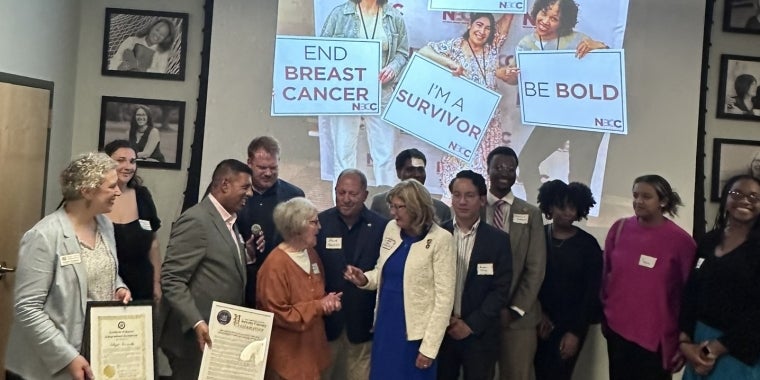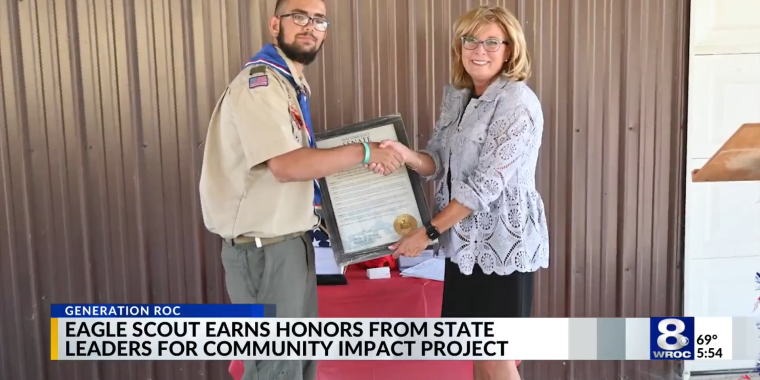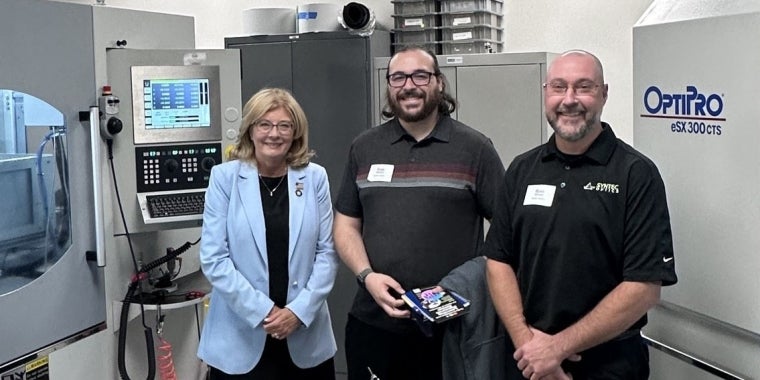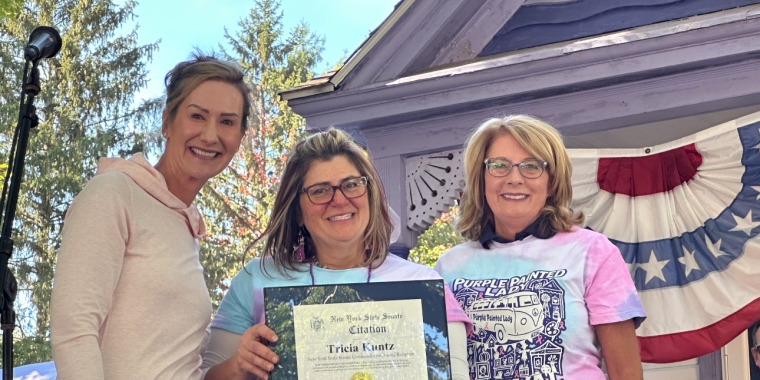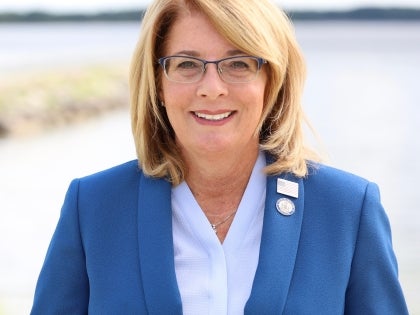
Senator Helming Backs Senate’s 2018 Jobs and Opportunity Agenda
Senator Pam Helming
May 14, 2018
GENEVA – Senator Pam Helming today announced that the New York State Senate recently passed the 2018 Jobs and Opportunity Agenda to strengthen the state’s economy and support job creation. The Senate Majority’s plan, backed by Senator Helming, focuses on comprehensive tax, regulatory, and economic development reforms that will help make the Wayne-Finger Lakes region more competitive and foster job growth at a time when the state’s private sector faces widespread obstacles to success.
“With less than two months remaining in this year’s legislative session, there is still much work to be done. We need to focus more than ever on creating opportunities that keep families and businesses here in the state. Our young people should not have to move out of state to find jobs and opportunities. These measures will help improve New York’s business climate by reducing the tax burden on small businesses, cutting red tape, and investing in workforce development initiatives that connect job seekers with employers. As State Senator, I remain committed to cutting taxes, reducing regulations on businesses, and making New York a leader in job training. We have an obligation to do the people’s work until the end of legislative session on June 20. Doing nothing for the remainder of session as some have suggested is simply not an option. I strongly urge Governor Cuomo and the Assembly Majority to put politics aside and place the needs of hardworking, middle-class taxpayers first over the course of the next several weeks,” Senator Helming said.
Ontario Chamber of Commerce President Donna Burolla said, “I am excited to learn about the Jobs and Opportunity Agenda. The Town of Ontario has several manufacturing expansions on the near horizon, and this will definitely help them. Two of the main concerns of businesses in New York State are taxes and finding hardworking employees. Thank you to Sen. Pam Helming for supporting legislation that provides aid to our small businesses, which are the backbone of our economy.”
The Jobs and Opportunity Agenda is part of the three-pronged “Blueprint for a Stronger New York” that focuses on making the state less costly and more attractive for hardworking New Yorkers. When combined together, the Blueprint’s Affordability, Opportunity, and Security Agendas will comprise a powerful and comprehensive plan to give all New Yorkers the opportunity to succeed.
Cutting Taxes on Small Businesses
Creating STAR for Small Businesses
S1116A allows real property owned by a small business (100 or fewer employees) to be eligible for the STAR property tax savings program.
Saving Hundreds of Millions in Taxes for Small Businesses and Farms
S2120A provides significant new tax savings for job-creating small businesses and small farms by expanding the existing Personal Income Tax exemption and reducing the Corporate Franchise Tax business income tax rate from 6.5 percent to 2.5 percent over a two-year period. The bill would save a total of $495 million when fully implemented.
Expanding the Minimum Wage Reimbursement Tax Credit
S6793A helps businesses who promote the success of student employees. The minimum wage reimbursement tax credit provides eligible employers with a credit for employing students at the minimum wage rate. Unfortunately, the way the credit is presently structured, employers who give hard-working student-employees even a modest hourly raise are no longer eligible to receive credit for those student-employees. This bill would correct this disincentive to provide student-employees with a modest raise by allowing credit for wages that are not in excess of the applicable minimum wage plus 50 cents.
Making New York a Leader in Job Training
Attracting Talented Educators Who Prepare the Next Generation
S1469A increases access to career and tech programs at BOCES. The bill would increase the current salary cap for BOCES CTE instructors from $30,000 to $50,000, phased in over five years to attract and retain qualified and skilled teachers.
Encouraging Statewide Participation in Apprenticeships
S2124B directs the Commissioner of Education to develop guidelines for use by high school guidance counselors in facilitating student awareness and interest in apprenticeships, pre-apprenticeships, and career and technical education opportunities. This would particularly apply to the hardworking men and women looking to gain footing in the building, construction, manufacturing, and maritime trades where positions all across the state are often left unfulfilled.
Establishing the “Retrain and Employ Unemployed Persons Program”
S2232A directs SUNY and CUNY community colleges to work with local businesses and industry to develop workforce training programs that target the unemployed and provide the skills necessary for individuals to obtain jobs in their communities. This bill also provides funding for the initial creation of this program by providing $500,000 in grants to start and additional incentive funding to those community colleges that successfully place trained individuals in jobs.
Cutting Red Tape and Over-regulation
Providing Time for Businesses to Raise Concerns with New Regulations
S6095 would allow the Administrative Regulations Review Commission to examine an issue and vote on a 90-day delay prior to the adoption of proposed administrative rules. This will help when businesses raise concerns about possible rulemaking inconsistencies with statutory authority or legislative intent or when requirements could potentially burden taxpayers or local governments.
Preventing Unfunded Mandates for Local Governments and their Taxpayers
S5828 establishes the Unfunded Mandate Review Act to protect local governments from mandated policies that they must pay for and in turn protects taxpayers from increasing tax levies. The bill requires the Comptroller to provide the fiscal impact notes upon request of a committee for any bill including an unfunded mandate, conduct a continuing mandate study of unfunded mandates upon any local government, and prepare comparative costs of proposed regulations.
Examining the Overall Effectiveness of the State Administrative Procedure Act
S2133 creates a Task Force charged with examining, evaluating, and making recommendations about the efficiency of the rulemaking process in the State Administrative Procedures Act. Since 1975, this act has been amended numerous times but has never undergone a comprehensive review its overall effectiveness. The Task Force would help ensure consistent, uniform rules are established and whether the existing statutory process results in rules, regulations, and licenses that are overly burdensome on regulated entities.
Creating New Authority to Contest Overly Burdensome Rules
S5982A would allow the state Administrative Regulation Review Commission (ARRC) to file a formal objection to proposed rules when they are burdensome and harmful to businesses, local governments, or other regulated parties. This bill seeks to encourage agencies to consider changing rules to accommodate the concerns raised by ARRC with the goal of having the agencies reconsider the rule.
Establishing a Small Business Liaison Position in State Agencies
S6706 fosters communication and cooperation be designating an existing state agency employee as a Small Business Liaison responsible for providing businesses with a reliable contact. The liaison will give important regulatory information, hear the businesses concerns, and advocate on behalf of the business within the agency. It expands on the New York State Workers’ Compensation Board’s successful implementation of an Advocate for Business that connects New York State business owners to help understanding the complex workers' compensation system.
Supporting Businesses in Enhancing Environmental Compliance
S2999A provides financial assistance to small businesses for the purpose of pollution prevention, control, and compliance. By increasing access to capital for small businesses seeking to pursue pollution prevention improvements, even when compliance is not an immediate issue, both the business and the state’s environment will benefit from the enhanced environmental performance.
Establishing the “GrowNY” Pilot Program
S3392A establishes the GrowNY pilot program, an economic gardening pilot program within the state Department of Economic Development to stimulate investment in the state economy by providing technical assistance for expanding businesses in the state. Economic gardening is a long-term entrepreneurial strategy designed to generate new jobs from the existing base of businesses in the community.
Strengthening Procedures for Negotiated Rule Making
S4590A promotes greater involvement of small businesses in the rulemaking process and make it more open and fair. The bill requires negotiated rulemaking to provide additional opportunities for small business and the public to directly participate in the development of proposed agency regulations. Negotiated rulemaking allows small business owners and representatives of all significant interests who would be affected by a regulation to meet and develop as broad a consensus as possible on terms of a rulemaking proposal.
Prevent Regulatory Steamrolling
S5912C would curtail state agency overuse of the emergency regulation process to ensure it is only used in true emergency situations when necessary to protect public health and safety. By amending the State Administrative Procedure Act’s emergency rulemaking provisions, it constricts the timeframe an agency can promulgate a single regulation as an emergency, and the circumstances surrounding the need for emergency rulemaking action by a state agency.
Updating State Contract MWBE Requirements
S1126A would help better reflect the number of certified Minority- and Women-owned Business Enterprise (MWBE) businesses in each region of the state. Across the state, businesses are required to contract services from MWBEs at 30 percent of their total business service. In many areas of the state, MWBEs are severely under-represented, making it difficult for existing business owners to be awarded a state contract. This bill amends the current law so contracting agencies would only be required to contract with the number of MWBEs correlating to the percentage of MWBEs in that industry in the economic development region where the contract is to be performed.
These bills have been sent to the Assembly.
